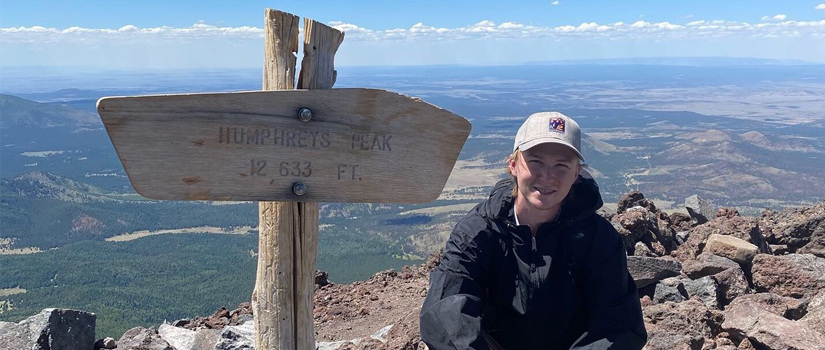Alan Rowland embraced every opportunity at the University of South Carolina as a researcher, mentor and campus leader. And as he graduates with his degree in physics, he says these experiences prepared him for a bright future.
He didn’t always believe he would get to this point. He grew up in a low-income household.
His father was disabled, and his mother took care of him and his grandparents. Rowland
wondered if he would ever get the opportunity to go to college.
"I strived very hard in high school to excel in my studies," he says.
His hard work paid off since he qualified for top scholarships as he applied to college. But when he tallied those scholarships, they weren’t quite enough. "I had obtained much of the cost to go to school, but I was still missing about $4,000,” he says.
That changed when his mother received a phone call about the Gamecock Guarantee, a program dedicated to helping first-generation students be successful at South Carolina.
"Thankfully, UofSC did not let me fall through the cracks," Rowland says. And he paid that forward, too, by helping make sure other students could thrive in the campus community. He spent three years working as a resident mentor in the Honors Residence Hall. He took residents rock climbing and hosted weekly game nights playing Dungeons & Dragons, all to help people find their place.
"I had the opportunity to mentor and develop relationships with over 100 honors freshmen that come from all walks of life during my three years as a resident mentor," Rowland says.
In the beginning, Rowland had a hard time fitting in.
"I realized that most of my classmates had much better instruction and opportunities than I had in high school," he says.
Thankfully, UofSC did not let me fall through the cracks.
— Alan Rowland
Despite feeling like he couldn't measure up, Rowland worked alongside physics professor Yordanka Ilieva. Spending two summers in her research lab, Rowland gained confidence in nuclear physics research. They studied how small photosensors behave in magnetic fields about 10,000 times stronger than Earth’s magnetic field.
“In nuclear physics, we use these sensors to 'see' what particle passed through a detector after a nuclear reaction had occurred,” says Ilieva. “The project is part of the much larger effort to design and build a U.S. Electron-Ion Collider, which will act as a high-power microscope to study the most elusive fundamental blocks of visible matter: the gluons.”
Ilieva says she was impressed by Rowland's unique combination of "a critical mind, outstanding work ethic, ability to learn quickly, and pure humanity." She invited him to join her at the Thomas Jefferson National Accelerator Facility in Newport News, Virginia, the summer after Rowland’s freshman year. There, they worked on research with a nuclear accelerator. After that, she offered him another internship working in her lab.
Working beside Ilieva opened many doors for Rowland. He applied to the Conference Experience for Undergraduates at the Annual Division of Nuclear Physics of the American Physical Society, and he got accepted two years in a row. He also got to lobby in Washington, D.C., for the funding of an electron-ion collider.
"He joined me as an ambassador of experimental nuclear physics in an outreach event in the U.S. Congress,” Ilieva says. “His contribution helped the positive outcome of the event.”
During his time at South Carolina, Rowland was president of the Society of Physics Students chapter on campus. He visited various Title I elementary schools, which receive federal funding because of the low income of their students, to speak about the importance of STEM careers and show kids demonstrations and videos.
For fun, he once hiked the tallest mountain in Arizona on a whim.
Some of these activities would have challenged him once, but he grew in confidence and competence thanks to his opportunities at UofSC.
"I had the opportunity to work at a DoE National Lab for two summers and present my work at various conferences, in addition to working in an on-campus physics lab for all eight semesters of my undergraduate degree," says Rowland.
Ilieva praises Rowland for "having a fine sense of people skills and communicating complex ideas very well."
This year, Rowland applied to several graduate schools and was admitted to half of them. After making family history by becoming the first to earn a college degree, he now will become the first to attend graduate school.
When asked what he is most proud of, he says, "I know it's cheesy, but making my parents proud!"
